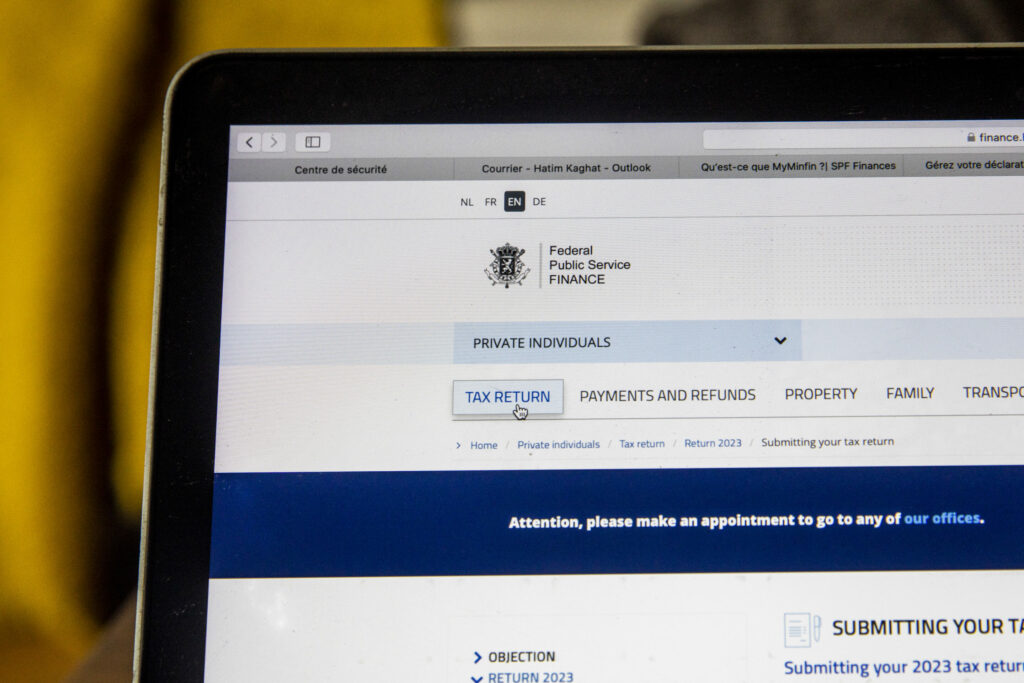These effective strategies will trim your Belgian tax bill before the year ends;
✔ Save for retirement and get up to a 30% tax rebate
✔ Pay daycare bills now to benefit from a 45% tax reduction
✔ Life insurance offers a 30% tax break on contributions up to €2,450
✔ And many more!
How to pay less tax in 2025: 9 To Do's before the end of the year

What better Christmas present to gift yourself than a cheaper tax bill in the coming year? Belgium's high tax burden is world-famous but some last-minute actions before the end of the year can still help those looking to reduce their payments to the Belgian State in the next one.
From quickly stocking up on service vouchers, starting to save for your pension or giving money to charity, here are a few savvy tax tips to consider before the year ends.
1. Start saving for your retirement
Anyone aged between 18 and 65 who pays tax in Belgium can get tax relief on pension savings, which is why people are advised to start their 'pension saving fund' sooner rather than later.
For those who have not yet made a deposit into their retirement fund this year, it is not too late: as long as you deposit by 31 December at the latest, you will get a tax rebate on that amount next year
Not only does it ensure that you have some money put aside for later, you can also enjoy a 30% tax reduction now if you have saved a maximum of €1,020. That translates into a maximum benefit of €306.
Making additional deposits of up to €1,310 per year is also possible but then the tax reduction decreases to 25% – good for a maximum benefit of €327.50. Importantly, this means that opting for the 25% tax break is only more advantageous if you save more than €1,224.
2. Buy some more service vouchers
From January 2025, service vouchers ("titres-service") will become €2.80 more expensive, as the price per voucher will rise from €9 to €10 and the tax benefit will disappear. Until the end of 2024, people buying them still get €1.80 back from taxes per voucher.
This makes it worth stocking up on service vouchers before the end of the year if you have not yet reached your maximum amount of €1,790 worth of vouchers per person (couples can double that amount).
However, these vouchers are only valid for one year, so it is important to keep the expiry date in mind when ordering.

Household helpers are usually paid in service vouchers. Credit: Belga/ Dirk Waem
3. Gift inheritances a little earlier
Gifting your money, shares, jewellery or expensive works of art as a "donation" while alive is cheaper for your heirs than if they inherit them after your death.
To do this, there are two options. Either you can register such a donation with the notary or through a private deed, after which you pay a one-time gift tax of 3% or 7%, depending on the donation. After that, you will never have to pay inheritance tax.
You can also choose not to register the gift, but the donor must remain alive for at least three years after making the donation. If they do die earlier, the heirs will have to pay inheritance taxes on that donation.
From 2025, that term will be increased from three years to five. So those planning to make a gift are better off doing so by 31 December at the latest.
4. Donate money to charity
Giving money to a good cause is also rewarded by the taxman – quite significantly. Donations to a recognised charity yield a tax reduction of 45%.
In practice, this means that if you were to donate €100 to Médecins sans Frontières, you would get back €45 in taxes the next year. However, there are some conditions: the gift must be at least €40 per charity in a whole year and the total amount donated may not exceed 10% of your total taxable income.

An MSF worker helping an asylum seeker at the medical point. Credit: MSF/ Pierre Fromentin
5. Take out a life insurance
People who could afford to live comfortably now might consider taking out life insurance. There is a sizeable 30% tax break for new and current contracts up to a maximum amount of €2,450. At best, it can give you a benefit of €735.
However, if you already have a long-term mortgage loan that entitles you to tax deductions, life insurance will not give you any additional benefit.
6. Children in daycare? Pay the bills now
People who send their children to childcare enjoy a tax reduction of 45% up to a maximum of €16.40 per day and per child – giving them a net benefit of €7.38 per day and per child. For a low-income single parent, this reduction can even rise to €12.30 per day per child.
However, to get the benefits it is important to pay the bills this week: for the 2025 tax return, only payments made in 2024 will be taken into account.
Importantly, people with incomes below the taxable minimum pay no taxes. This means they also do not claim tax reliefs like those that exist for donations or payments for retirement savings.

Credit: Unsplash
7. Put your money in a start-up
Anyone investing up to a maximum of €100,000 in a 'start-up' will get a federal tax rebate of 30% or 45% of the amount invested, thanks to the tax shelter for start-ups. A similar investment in a 'scale-up' or growth company yields 25%.
You can provide capital directly through an approved crowdfunding platform or a start-up fund. For SMEs in Flanders, there is a win-win loan: in addition to an interest payment the borrower receives an annual tax rebate of 2.5% on the outstanding capital.
8. Invest in microfinance for developing countries
Do you want to do your bit for a better world but also for your own tax returns? Buy shares of recognised development funds that provide microcredits to local entrepreneurs in developing countries. Starting from an investment of €410, you enjoy a tax advantage on the purchase of shares of recognised development funds such Alterfin, Oikocredit and Incofin.
The tax reduction is 5% of the sum invested, with a maximum of €340. You achieve this with an investment of €6,800. However, you must keep the shares for at least five years.
9. Take out a legal expenses insurance policy
Those who take out a separate policy for legal expenses insurance can (partially) deduct the premium they paid from their taxes. Such an insurance covers the costs of legal disputes. Importantly, it has to be a separate policy that meets specific conditions; there is no tax advantage for the legal expenses section in your fire, car or family policy.
Premiums up to €320 are eligible for a 40% cent tax reduction, giving a maximum benefit of €128.
Importantly, people with incomes below the taxable minimum pay no taxes. This means they also do not claim tax reliefs like those that exist for donations or payments for retirement savings.
